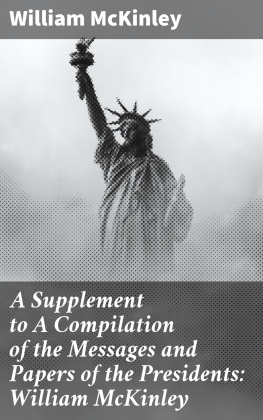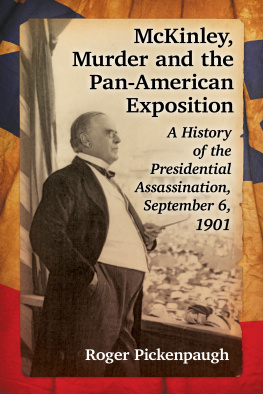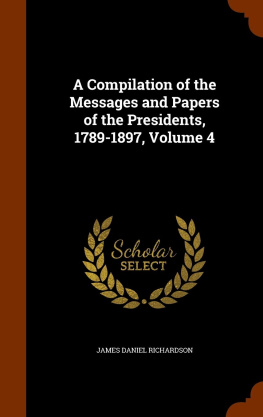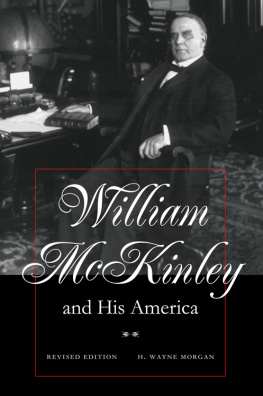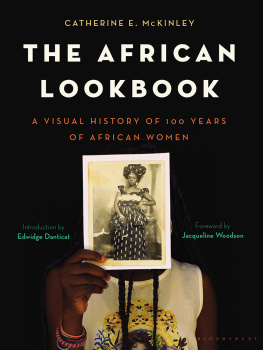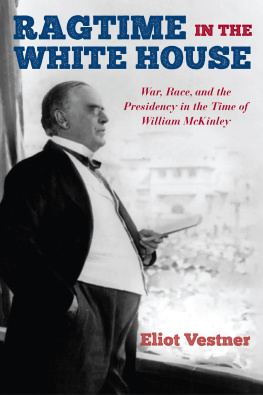William McKinley
William McKinley, the twenty-fifth President of the United States, was born in Niles, Trumbull County, Ohio, January 29, 1843. His ancestors on the paternal side, who were Scotch-Irish, came from Scotland and located in Pennsylvania. His great-grandfather, David McKinley, after serving in the Revolution, resided in Pennsylvania until 1814, when he went to Ohio, where he died in 1840, at the age of 85. The grandmother of the President, Mary Rose, came from a Puritan family that fled from England to Holland and emigrated to Pennsylvania with William Penn. The father of the President, William McKinley, sr., was born in Pine Township, Mercer County, Pa., in 1807, and married Nancy Campbell Allison, of Columbiana County, Ohio, in 1829. Both the grandfather and father of the President were iron manufacturers. His father was a devout Methodist, a stanch Whig and Republican, and an ardent advocate of a protective tariff. He died during his son's first term as governor of Ohio, in November, 1892, at the age of 85. The mother of the President passed away at Canton, Ohio, in December, 1897, at the advanced age of 89. William McKinley was educated in the public schools of Niles, Union Seminary, at Poland, Ohio, and Allegheny College, at Meadville, Pa. Before attaining his majority taught in the public schools. At the age of 16 became a member of the Methodist Episcopal Church. At the beginning of hostilities in the War between the States Mr. McKinley, who was a clerk in the Poland post-office, volunteered his services, and on June 11, 1861, was enlisted as a private in the Twenty-third Ohio Volunteer Infantry. Participated in all the early engagements in West Virginia, and in the winter's camp at Fayetteville received his first promotion, commissary-sergeant, on April 15, 1862. In recognition of his services at Antietam, Sergeant McKinley was made second lieutenant, his commission dating from September 24, 1862, and on February 7, 1863, while at Camp Piatt, he was again promoted, receiving the rank of first lieutenant. In the retreat near Lynchburg, Va., his regiment marched 180 miles, fighting nearly all the time, with scarcely any rest or food. Lieutenant McKinley conducted himself with gallantry, and at Winchester won additional honors. The Thirteenth West Virginia Regiment failed to retire when the rest of Hayes's brigade fell back, and, being in great danger of capture, the young lieutenant was directed to go and bring it away, which he did in safety, after riding through a heavy fire. On July 25, 1864, at the age of 21, McKinley was promoted to the rank of captain. The brigade continued its fighting up and down the Shenandoah Valley. At Berryville, Va., September 3, 1864, Captain McKinley's horse was shot from under him. Served successively on the staffs of Generals R.B. Hayes, George Crook, and Winfield S. Hancock, and on March 14, 1865, was brevetted major of United States Volunteers by President Lincoln for gallantry in the battles of Opequan, Cedar Creek, and Fishers Hill. Was detailed as acting assistant adjutant-general of the First Division, First Army Corps, on the staff of General Samuel S. Carroll. At the close of the war was urged to remain in the Army, but, deferring to the judgment of his father, was mustered out of the service July 26, 1865, and returned to Poland. At once began the study of law under Glidden & Wilson, of Youngstown, Ohio, and later attended the law school in Albany, N.Y. Was admitted to the bar in March, 1867, at Warren, Ohio, and the same year removed to Canton, Ohio, which has since been his home. In 1867 his first political speeches were made in favor of negro suffrage. In 1869 was elected prosecuting attorney of Stark County, and served one term, being defeated two years later for the same office. Mr. McKinley took an active interest in State politics, and made speeches in many of the campaigns. On January 25, 1871, married Miss Ida Saxton. Two daughters were born to them, both of whom died in early childhood. In 1876 was elected a member of the National House of Representatives, and for fourteen years represented the Congressional district of which his county was a part, except for a portion of his fourth term, when he was unseated late in the first session. While in Congress served on the Committees on the Judiciary, Revision of the Laws, Expenditures in the Post-Office Department, Rules, and Ways and Means. As chairman of the last-named committee in the Fifty-first Congress, reported the tariff law of 1890. At the beginning of this Congress was defeated in the caucus of his party for the Speakership of the House. In the meantime, his district having been materially changed, he was defeated for reelection to Congress in November, 1890, though he largely reduced the usual majority against his party in the counties of which the new district was constituted. In 1891 was elected governor of Ohio by a plurality of 21,500, and in 1893 was reelected by a plurality of 80,995. In 1884 was a delegate at large to the Republican national convention, and supported James G. Blaine for President; was a member of the committee on resolutions, and presented the platform to the convention. Also attended the convention of his party in 1888 as a delegate at large from Ohio, supporting John Sherman for President, and as chairman of the committee on resolutions again reported the platform. In 1892 was again a delegate at large from Ohio, and supported the renomination of Benjamin Harrison, and served as chairman of the convention. At that convention 182 votes were cast for him for President, although he had persistently refused to have his name considered. On June 18, 1896, was nominated for President by the national convention of his party at St. Louis, receiving on the first ballot 661-1/2 out of a total of 922 votes. Was chosen President at the ensuing November election by a plurality in the popular vote of over 600,000, and received 271 electoral votes, against 176 for William J. Bryan, of Nebraska.
SPECIAL MESSAGE.
EXECUTIVE MANSION, May 17, 1897.
To the Senate and House of Representatives of the United States:
Official information from our consuls in Cuba establishes the fact that a large number of American citizens in the island are in a state of destitution, suffering for want of food and medicines. This applies particularly to the rural districts of the central and eastern parts.
The agricultural classes have been forced from their farms into the nearest towns, where they are without work or money. The local authorities of the several towns, however kindly disposed, are unable to relieve the needs of their own people and are altogether powerless to help our citizens.
The latest report of Consul-General Lee estimates six to eight hundred Americans are without means of support. I have assured him that provision would be made at once to relieve them. To that end I recommend that Congress make an appropriation of not less than $50,000, to be immediately available, for use under the direction of the Secretary of State.
It is desirable that a part of the sum which may be appropriated by Congress should, in the discretion of the Secretary of State, also be used for the transportation of American citizens who, desiring to return to the United States, are without means to do so.
WILLIAM McKINLEY.

